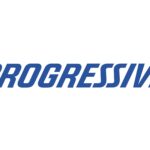Three former Takata Corp. employees will share an award of $1.7 million after they alerted authorities to the risks of deadly air bag inflators that led to the largest recall in automotive history.
The whistleblowers provided extensive assistance and information to the U.S. government in its criminal case against Takata, according to law firm Constantine Cannon LLP, which represented two of them.
Takata agreed in bankruptcy court on Monday to pay the three men out of a reserve fund created during its bankruptcy proceeding. Although Congress passed a whistleblower act in 2015 the government has not completed work on a mechanism to pay awards.
The whistleblowers, Mark Lillie and another man who remained anonymous, both former Takata employees, had asked a federal judge in Detroit and the bankruptcy court to set aside significantly more as the U.S. Transportation Department decides whether to grant them a whistleblower award, but they were not successful.
A third whistleblower who has not been identified in court documents is represented by another law firm.
At least 22 deaths and hundreds of injuries worldwide are linked to Takata inflators that can explode, unleashing metal shrapnel inside cars and trucks. The defect led Takata to file for bankruptcy protection in June.
Nearly 30 million vehicles remain unrepaired in the recall That affected 19 automakers.
The three sought awards under the Motor Vehicle Safety Whistleblower Act. Congress directed the National Highway Traffic Safety Administration to write rules for the program by June 2017, but the agency has not completed the work. The government could still award money to the three whistleblowers.
The law allows auto-industry employees who report serious violations of federal vehicle-safety laws to receive 10 percent to 30 percent of any monetary sanction over $1 million the government recovers based on whistleblowers’ information.
A NHTSA spokeswoman said the agency was not involved in the award announced Tuesday. The agency is still working on writing the regulations, officials said.
Lillie resigned from his position as a top-level engineer in 2001, his lawyers said, adding that he turned over evidence to the government showing Takata knew as early as 1999 that its airbags could be deadly and provided emails and designs.
The anonymous whistleblower helped demonstrate that Takata “falsified data, subverted testing procedures, and concealed reports its airbags were prone to failure,” the law firm said.
The second whistleblower lives in an area where there is a Takata facility and works for a large corporate manufacturer there and fears repercussions, the law firm said. The 2015 law allows whistleblowers to proceed anonymously.
Takata pleaded guilty in 2017 to a single felony count of wire fraud to resolve a U.S. Justice Department investigation and agreed to a $1 billion settlement.
Takata did not immediately comment on Tuesday.
In 2017, prosecutors in Detroit charged three former senior Takata executives with falsifying test results to conceal the inflator defect.
Last week, a U.S. Senate panel pressed automakers and regulators over why tens of millions of vehicles with Takata air bag inflators are unrepaired.
NHTSA said last week that 21 million of the 50 million air bag inflators recalled by 19 automakers have been repaired.
(Reporting by David Shepardson Editing by Jeffrey Benkoe)
Topics USA
Was this article valuable?
Here are more articles you may enjoy.


 Grand Jury Indicts ‘Hole in Won’ Owner on Prize Insurance Fraud Charges
Grand Jury Indicts ‘Hole in Won’ Owner on Prize Insurance Fraud Charges  FBI Says Chinese Hackers Preparing to Attack US Infrastructure
FBI Says Chinese Hackers Preparing to Attack US Infrastructure  Uncertainty Keeps Prices Up; No Prior-Year Loss Development: Travelers
Uncertainty Keeps Prices Up; No Prior-Year Loss Development: Travelers  Progressive Records Five-Fold Increase in Q1 Net Income
Progressive Records Five-Fold Increase in Q1 Net Income 

